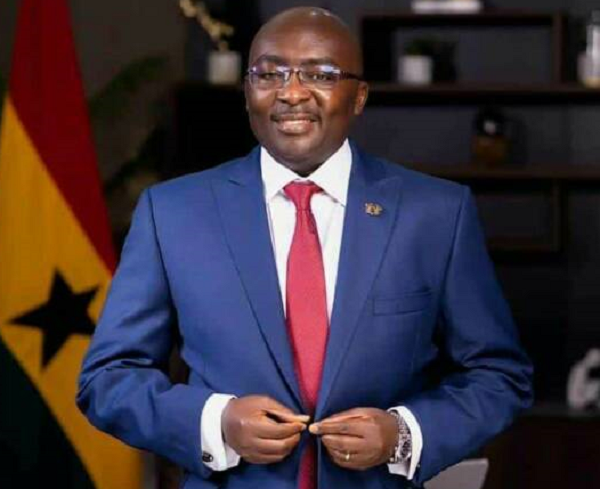Despite the New Patriotic Party’s (NPP) defeat in Ghana’s 2024 general elections, former flagbearer Dr. Mahamudu Bawumia has solidified his standing as a unifying force within the party, with a recent Global InfoAnalytics poll revealing a significant surge in his internal approval.
Support among NPP members has risen from 48% to 57% since April 2025, signaling renewed confidence in his leadership amid the party’s post-election introspection .
The poll, conducted weeks after the NPP’s electoral setback, highlights Bawumia’s ability to galvanize grassroots support through sustained engagement and measured rhetoric. Analysts attribute his rising influence to his visible presence at party events, policy-driven campaign legacy, and composed response to the defeat, which has resonated with members seeking stability and direction .
Bawumia’s focus on reconnecting with the NPP’s base a strategy underscored by his nationwide tours and emphasis on digital transformation has bolstered his image as a modernizing leader. His economic expertise and technocratic credentials are particularly appealing to younger members and party elites, who view him as a bridge between the NPP’s traditional values and contemporary governance challenges .
The timing of the poll is critical. As the NPP navigates internal debates over its future, Bawumia’s growing clout positions him as a frontrunner for the party’s 2028 presidential ticket. A separate survey shows 57% of NPP supporters prefer him as the next flagbearer, far outpacing rivals like Kennedy Agyapong (22%) and Dr. Yaw Osei Adutwum (11%) .
The surge in Bawumia’s popularity contrasts with broader tensions within the NPP. The party recently directed members to halt public discussions that risk exacerbating divisions, a move reflecting concerns over factionalism tied to former President Nana Akufo-Addo’s legacy. Critics, including former MP Inusah Fuseini, warn that unresolved rifts between pro-Akufo-Addo loyalists and reformers threaten the party’s cohesion .
Yet Bawumia’s ascendancy suggests a potential path forward. Party insiders note his ability to straddle competing factions, leveraging his tenure as vice president while distancing himself from controversies linked to the previous administration. “This isn’t just about popularity it’s about trust and leadership direction,” one observer noted, echoing sentiments that Bawumia could steer the NPP toward recalibration rather than radical overhaul .
The NPP’s leadership renewal process, expected to intensify in the coming months, will test Bawumia’s capacity to translate polling gains into structural influence. His advocates argue that retaining him as the party’s face could streamline messaging and mobilize a demoralized base ahead of local elections. However, challenges persist, including addressing voter disillusionment and reconciling internal ideological divides .
For now, Bawumia’s resurgence underscores a broader trend in Ghanaian politics: defeated candidates often retain significant sway within their parties if perceived as resilient and forward-thinking. As the NPP seeks to rebuild, his blend of pragmatism and continuity may prove pivotal in shaping its trajectory toward 2028.
Send your news stories to newsghana101@gmail.com
Follow News Ghana on Google News
















